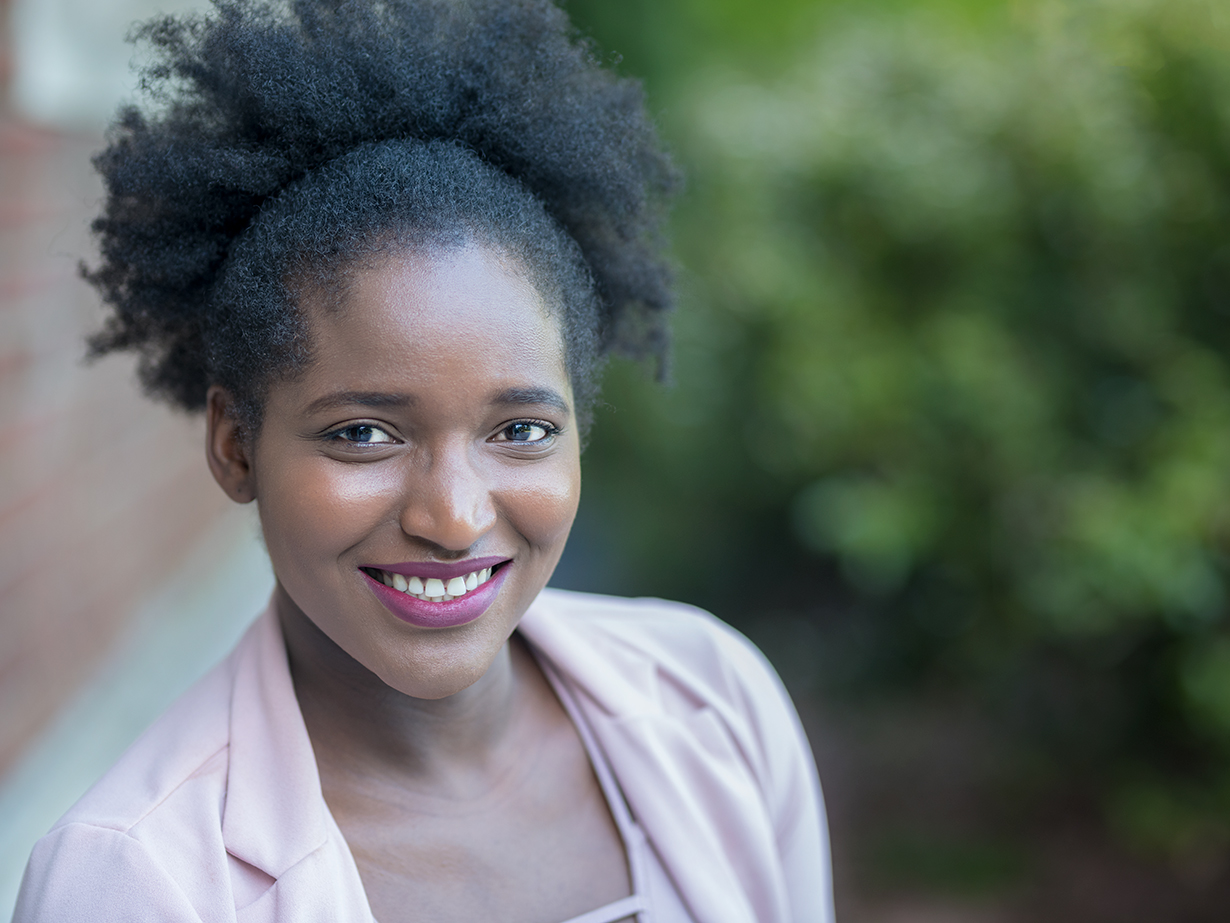One might not expect someone who has been bullied and shot at to pour all her energy into helping others. But Divine has been defying odds and expectations her whole life. When doctors told her she had a 2% chance of living after health complications in college, she said “‘God, this is not the last thing you want me to do here. I know I still have work to do helping other people.’”
Divine Irambona was born in 1995 in Kanembwa, a refugee camp in Tanzania, where her parents and sister, Jenny, had fled from war-torn Burundi. The sisters have different last names because, in the Burundian culture, names are chosen based on the events happening at the moment of birth. Jenny’s name means happiness because their father was happy at the birth of his first child, while Divine’s means “God sees me.” Her mother, knowing she would not survive to raise Divine, named her to signify that she herself would soon “see God” and leave her family behind. Her name is Divine’s only gift from her mother, who died the day after Divine was born.
Shortly after her mother’s death, Divine got sick from drinking cow’s milk, and her soon-to-be stepmother did whatever it took to keep her from dying. It was the first of many death-defying experiences in Divine’s life.
In Kanembwa, Divine’s father set up a small business helping other refugees. Because the business made money, the family had security guards. One night when Divine was eleven years old, she heard them warn of robbers. “‘Run or you will die,’ they told my father,” she recalls. He took off. Divine, Jenny, their pregnant stepmother, and another woman were surrounded in the house. “Give us all your money or the entire family will die,” the men threatened.
Her mother handed over some money, but it was not enough. Divine, who was hiding, darted out between the mens’ legs, past bullets, and ran to her neighbor for help. “I guess I was kind of like a hero at that moment,” she comments.
The next year, after living with U.N. refugee status for over 10 years, the family immigrated to the U.S. and moved to Beaverton, Oregon.
Despite not knowing English, Divine was excited to go to school, but she and her siblings were shunned. Nobody wanted to sit next to them on the bus or at lunch. The other kids would say things like “Go back to Africa. You smell.”
Divine turned all of her attention to learning English and working hard in school, staying up late to study and taking summer classes. She graduated from Aloha High School in 2013.
To her dismay, the bullying continued even when she got to college at Western Oregon University in Monmouth, where she was the only African girl in her dorm. Divine decided to take action. After dorm management failed to change things, she sought advice from Affiong Eyo, the only African woman working on campus. Eyo encouraged Divine to start the African Students and Friends Association to create community and teach other students about African countries.
Divine was also the president of the International Student Club and had a job helping older disabled people. She stayed in school despite serious health complications. Her stomach problems, which had started as a baby, got worse until infections and sickness led to kidney failure. Blood thinners caused internal bleeding and pneumonia. She found out she had gallstones big enough to kill her. After surgery, she became vegan to help her health.
Because her goal has always been to help people, Divine persevered despite health issues to get her Sociology degree. She currently works as a Peer Support Specialist at Northwest Human Services, matching clients who are homeless or disabled with needed services. “Sometimes I can help someone get off the street. Every time I do that, it makes my day,” she says.
Divine also volunteers with refugees coming to Salem, Oregon. When asked why helping people is so important to her, Divine says, “I believe that everyone deserves peace. Everyone deserves a home.”
___
This story follows last week’s story of Divine’s sister, Jenny. Both sisters survived the brutal civil war in Burundi after their family were taken as refugees to Beaverton, Oregon.


One thought on “Dignity in Helping Others”
This is a remarkable story of courage and perseverance and not letting the circumstances of one’s live cause bitterness and resentment. Not easy even for those of us who have not had a life or death threatening experience, lived in a refuge camp, or was bullied and discriminated against. Bravo!
Comments are closed.